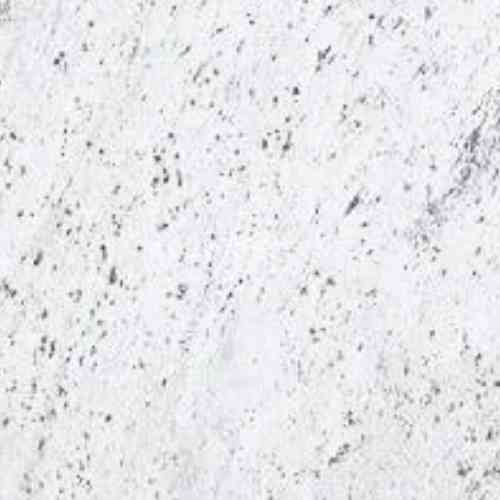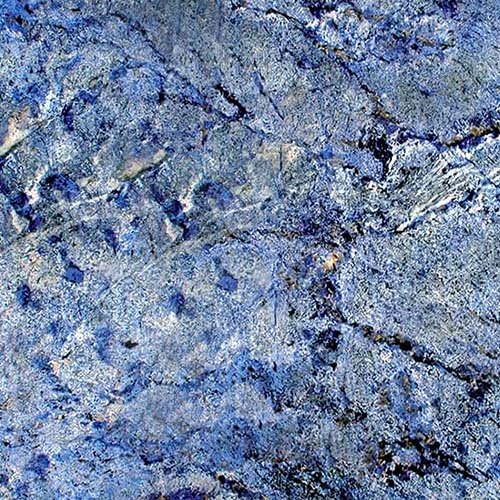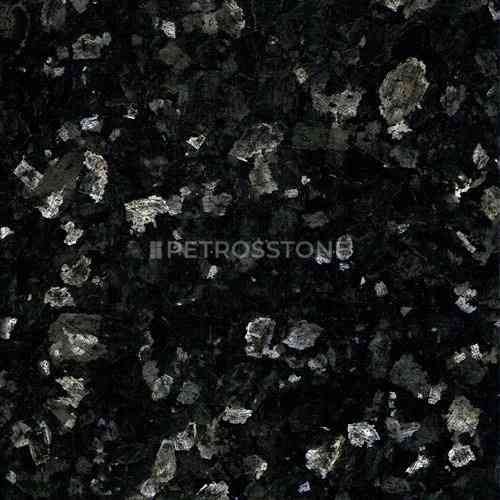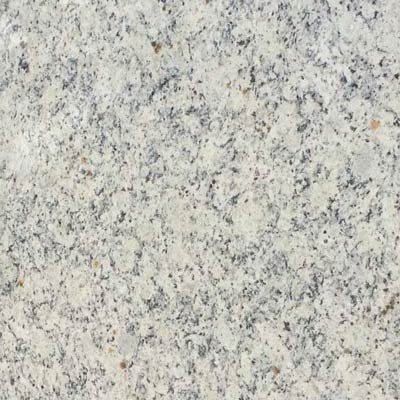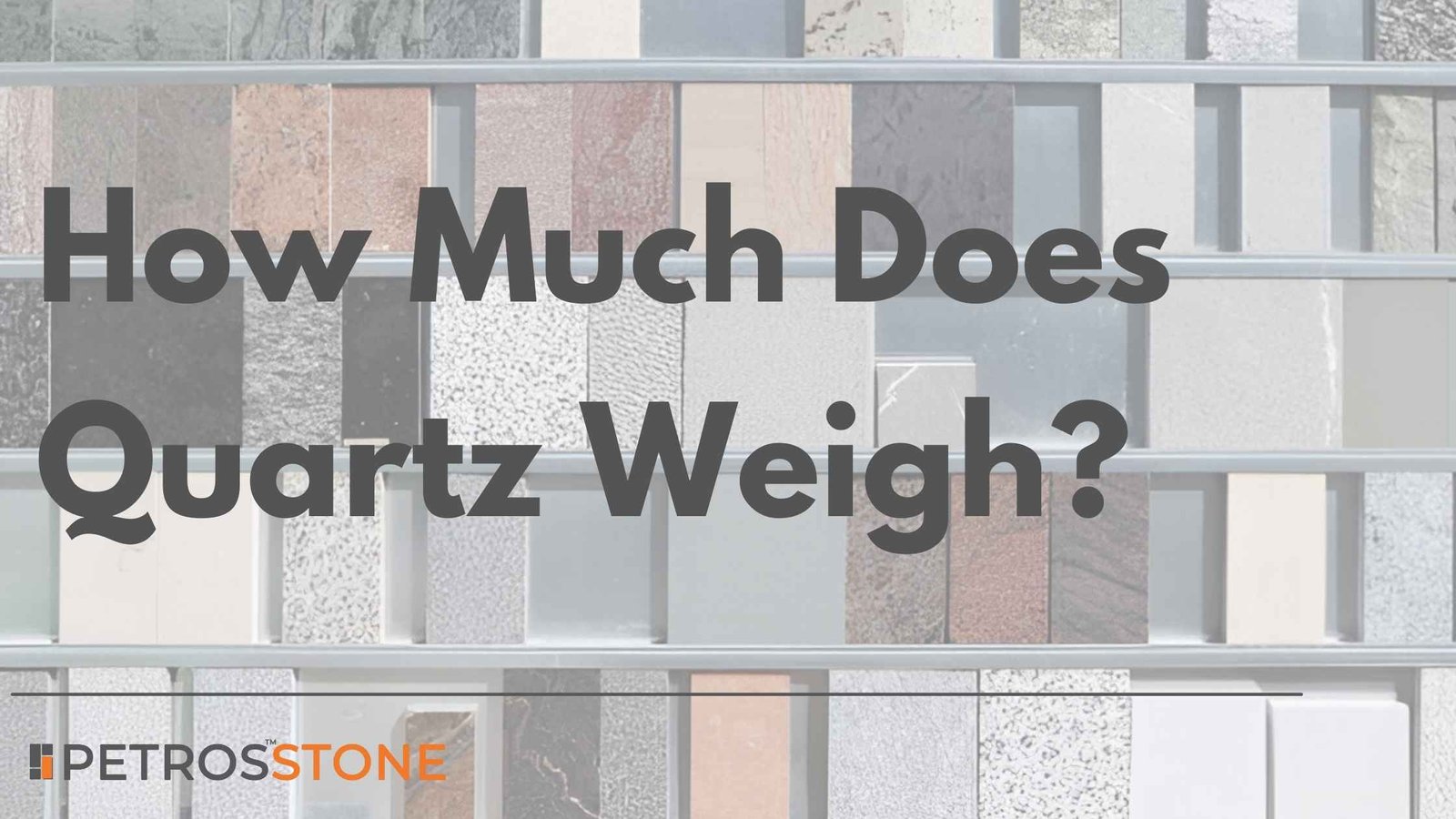
The weight of quartz and granite countertops depend on two factors: their total area and the thickness of the countertop. Here is a table with the weight per square foot for each type of countertop.
| Material | Thickness | Weight per sq. ft. (lbs) | Standard Slab Area (sq. ft.) | Approx. Slab Weight (lbs) |
| Quartz | 2cm | 10-13 | 50-60 | 500-780 |
| Quartz | 3cm | 15-20 | 50-60 | 750-1200 |
| Granite | 2cm | 12-14 | 50-60 | 600-840 |
| Granite | 3cm | 18-22 | 50-60 | 900-1320 |
What is the weight of a quartz slab?
For 2cm thick quartz stone slab, each square foot weighs around 10 to 13 pounds, and a standard slab (approximately 50 to 60 square feet) can weigh between 500 and 780 pounds. Increasing the thickness to 3cm raises the weight per square foot of quartz stone slab to about 15 to 20 pounds, resulting in a total slab weight of roughly 750 to 1,200 pounds.
What is the weight of a granite slab?
Similarly, 2cm thick granite weighs about 12 to 14 pounds per square foot, totaling about 600 to 840 pounds per slab. At 3cm thickness, granite’s weight increases to approximately 18 to 22 pounds per square foot, making a standard slab weigh between 900 and 1,320 pounds

- What is the weight of a quartz slab?
- What is the weight of a granite slab?
- How to Estimate the Weight of Your Quartz Countertop
- Weight of Granite Countertops
- Quartz vs. Granite: Weight Comparison
- Will a heavier Quartz or Granite Damage Your Cabinets?
- How to Calculate the Weight of Stone Countertops (Approximately)
- How to calculate the weight of your countertop (Very accurately)?
- Quick Weight Reference Table
- Additional Considerations for Homeowners
- Conclusion
When planning a kitchen or bathroom renovation, the weight of your chosen countertop material is a crucial consideration. Quartz and granite, two of the most popular countertop materials, are known for their durability, beauty, and functionality. However, understanding their weight is essential for proper planning, ensuring your cabinets can support them, and avoiding structural issues.
When planning a kitchen or bathroom renovation, the weight of your chosen countertop material is a crucial consideration. Quartz and granite, two of the most popular countertop materials, are known for their durability, beauty, and functionality. However, understanding their weight is essential for proper planning, ensuring your cabinets can support them, and avoiding structural issues.
Granite
Granite is a natural igneous rock composed primarily of quartz, feldspar, and mica. Known for its durability, heat resistance, and unique patterns, granite is a popular choice for countertops, flooring, and other architectural features.
Granite is a natural igneous rock composed primarily of quartz, feldspar, and mica. Known for its durability, heat resistance, and unique patterns, granite is a popular choice for countertops, flooring, and other architectural features..
Quartz
Quartz is an engineered stone made from crushed natural quartz mixed with resin and pigments. Unlike granite, quartz offers a non-porous surface that resists stains and requires minimal maintenance. It is available in a wide variety of colors and patterns, providing a sleek and uniform look suitable for modern designs.

Average Weight of Quartz Stone Slab
● 2cm Thickness: Quartz weighs approximately 10-12 pounds per square foot (4.5-5.5 kg per square foot).
● 3cm Thickness: Quartz weighs around 15-19 pounds per square foot (6.8-8.6 kg per square foot).
Weight of Quartz Slabs of Popular Brands in the USA
● Petros® Stone Quartz weight 13lb per square foot for 2cm thick and 20lb per square foot for 3cm thick slabs. This ensures the best strength properties at the same time not being too heavy to handle.
● Caesarstone: Quartz countertops from Caesarstone typically weigh 10-15 pounds per square foot, depending on the thickness.
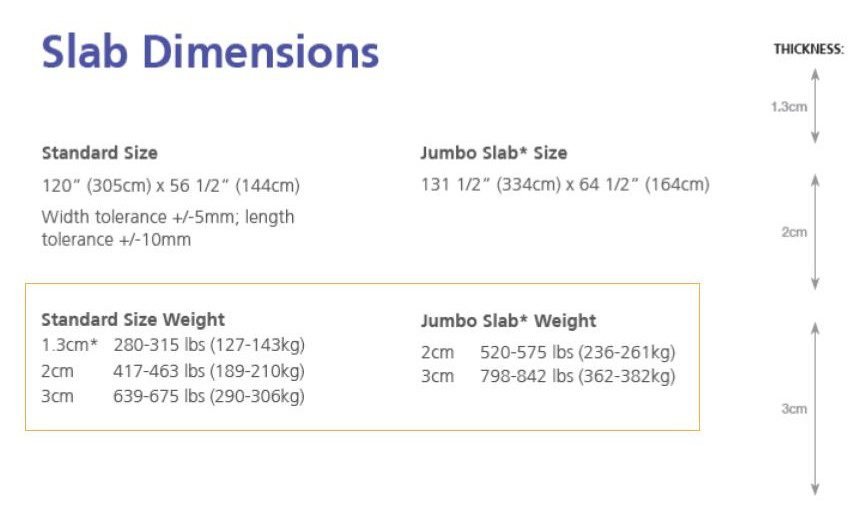
● Silestone: Similar to Caesarstone, Silestone ranges between 10-19 pounds per square foot.

● Cambria: Cambria quartz is also within this weight range, making it consistent across major brands.

How to Estimate the Weight of Your Quartz Countertop
1. Measure the Area: Calculate the countertop’s total square footage by multiplying the length and width of each section.
Pro Tip: make sure you measure and multiply the lengths and the widths in the same unit – preferable in “feet”, so that the area calculations stay in square feet)
2. Determine Thickness Weight: Use the standard weight per square foot based on the thickness of the slab (10-12 lbs/sq ft for 2cm, 15-19 lbs/sq ft for 3cm).
3. Account for Cutouts: If your countertop includes cutouts for sinks or appliances, subtract the weight of those areas from the total estimate.

Weight of Granite Countertops
Granite, a natural stone formed through volcanic processes, is celebrated for its unique patterns and natural beauty. It is slightly denser than quartz, which impacts its overall weight. This means granite countertops of the same size and exact same specifications will be heavier than quartz countertops.

Average Weight of Granite
● 2cm Thickness: Granite weighs approximately 12-14 pounds per square foot (5.5-6.4 kg per square foot).
● 3cm Thickness: Granite weighs around 18-20 pounds per square foot (8.2-9.1 kg per square foot).
How Heavy is a Sheet of Granite?
Granite slabs are available in various sizes, but a standard sheet typically covers 45-50 square feet.
● 2cm Slab Weight: A full 2cm granite sheet weighs approximately 540-700 pounds (245-318 kg).
● 3cm Slab Weight: A 3cm granite sheet weighs around 810-1,000 pounds (367-455 kg).
Quartz vs. Granite: Weight Comparison
| Material | Thickness | Standard Slab Area (sq. ft.) | Approx. Weight per Slab (lbs) | Approx. Weight per Slab (kg) |
| Granite | 2cm | 45-50 | 540-700 | 245-318 |
| Granite | 3cm | 45-50 | 810-1,000 | 367-455 |
| Quartz | 2cm | 45-50 | 450-650 | 204-295 |
| Quartz | 3cm | 45-50 | 700-1,000 | 318-455 |

While both quartz and granite are heavy materials, there are slight differences in their weights:
● Quartz Stone Slab: Weighs 10-19 pounds per square foot, depending on thickness.
● Granite: Weighs 12-20 pounds per square foot, with natural variations in density.
Key Takeaway: Granite tends to be slightly heavier than quartz due to its natural composition, but the difference is generally negligible in most applications. The primary factors affecting weight are slab thickness and size.
Will a heavier Quartz or Granite Damage Your Cabinets?

The weight of quartz or granite countertops raises a common concern: Can cabinets support them without damage?
• Standard kitchen cabinets are designed to support 250-500 pounds per square foot or more, depending on their construction.
• So any granite countertop, 2cm or 3cm – the maximum it will weigh is about 20-25 lbs per square feet. So it is absolutely not a concern at all.
• Reinforced cabinets with plywood bases or additional bracing can handle even heavier weights
Factors to Consider Along with the Weight of Countertops:
- 1. Cabinet Strength: Check for solid wood or plywood construction. Particleboard cabinets may require reinforcement
- 2. Proper Installation: Ensure cabinets are level and securely fastened to the wall and floor.
- 3. Support for Overhangs: Large overhangs, such as those for breakfast bars, may require additional support like corbels or brackets.
- In most cases, well-built cabinets can easily support quartz or granite countertops without issues.
How to Calculate the Weight of Stone Countertops (Approximately)
Whether you’re working with quartz, granite, or another stone like marble, calculating the weight involves a simple formula:

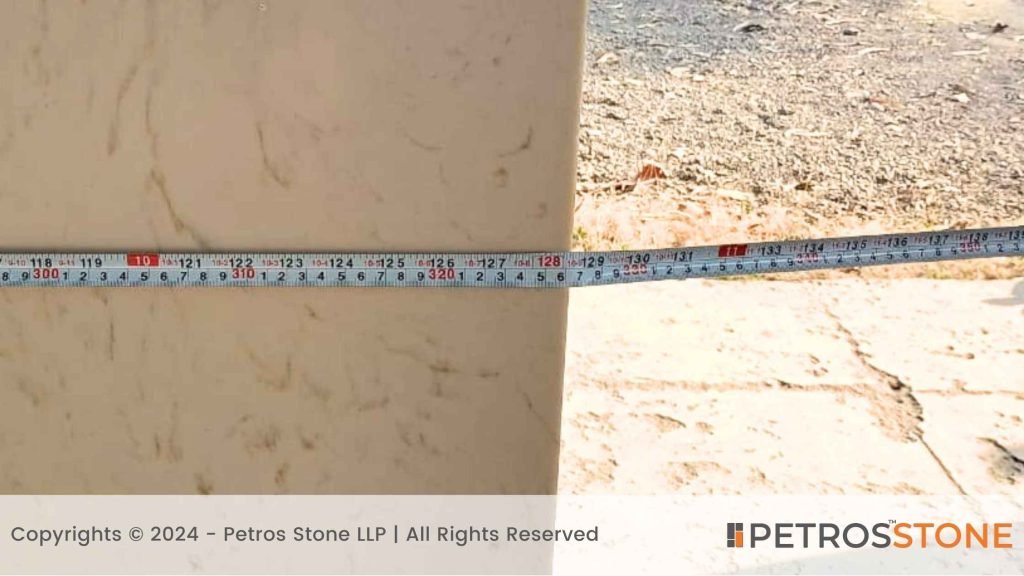
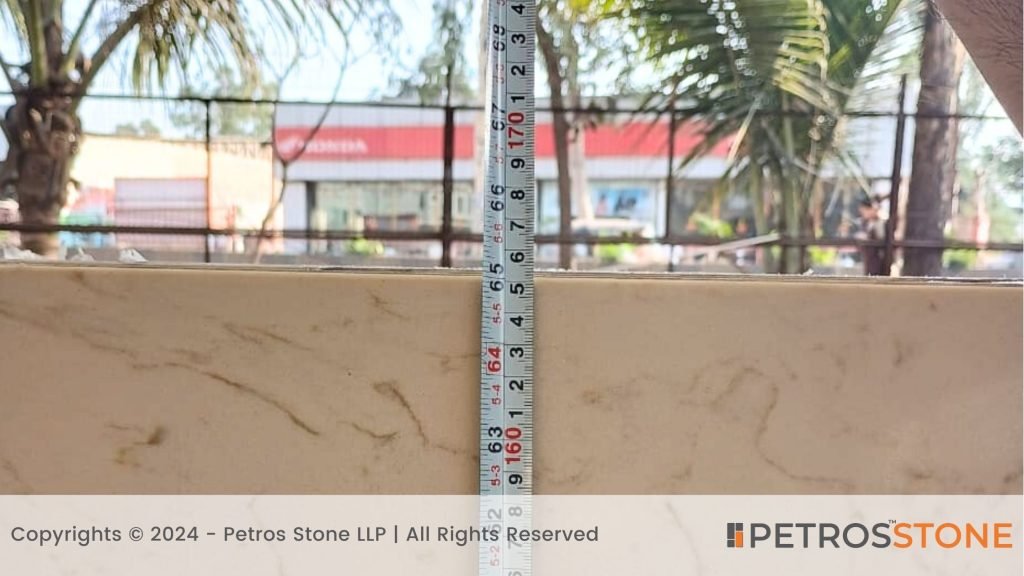
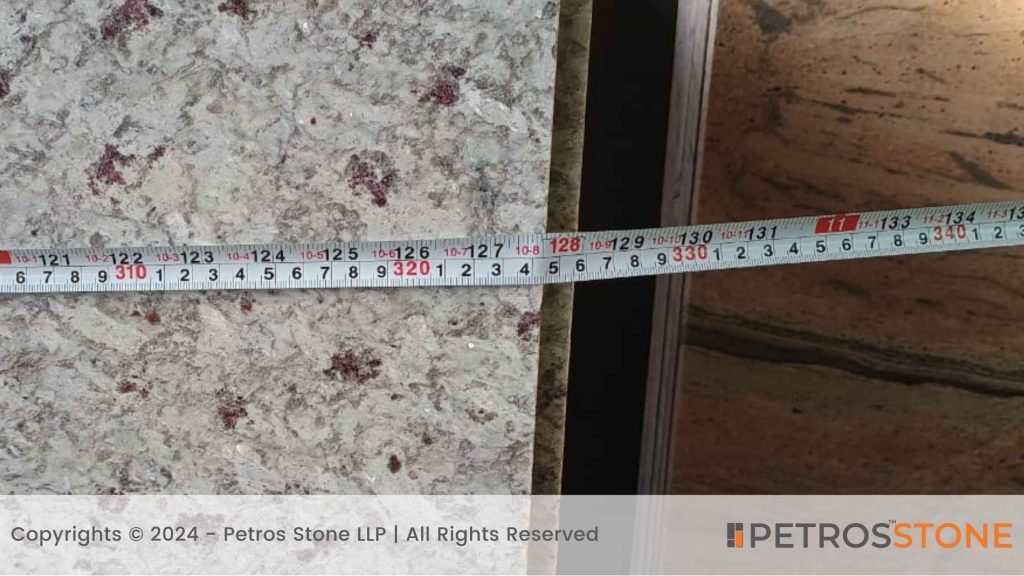
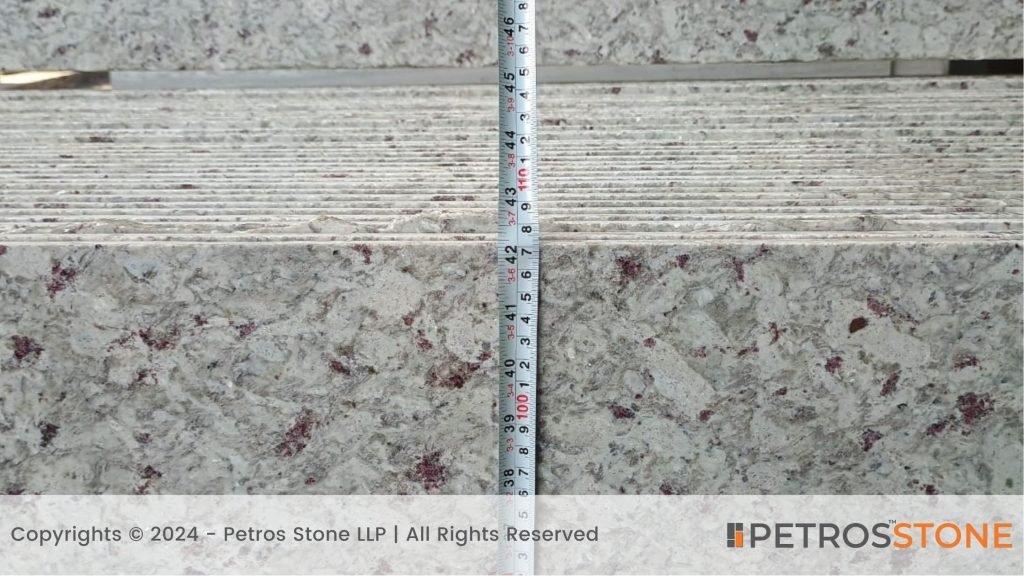
Weight = Area (sq ft) × Thickness (cm) × Material Density
For example in above case of quartz slab, heres how you can calculate the weight of a slab approximately:
Length: 326cm
Width: 165cm
Thickness: 2cm
Weight = 326 x 165 x 2 x 2.4 = 258192gms =>258kg (568lb)
Material Densities
Quartz: ~2.3-2.4 g/cm³
Granite: ~2.6-2.7 g/cm³
Marble: ~2.5-2.7 g/cm³
You can also find out the exact density of your specific countertop by looking at the brand’s specifications sheet.
Using this formula, you can estimate the total weight of your countertop material accurately. There are also online stone weight calculators available to simplify the process.
How to calculate the weight of your countertop (Very accurately)?
1. To verify your calculations are correct especially for the exact product that you have finally shortlisted. Here is a simple and effective way to be absolutely sure about the weight of your stone countertop
2. Get a sample of the exact stone that you will be using, 2cm or 3cm thick
3. Measure the length and the width of this sample. If the sample is small, measure the length and width in inches and divide it by 12 to get the length and the width in feet.
4. Now calculate its area by multiplying the length and the width.
5. Use an accurate weighing scale to measure its weight. A kitchen weighing scale works really well.
6. Now, calculate the weight per square foot by dividing the weight of this sample by its area.
7. Finally, use this weight per square feet and multiply it with the size of your countertop to get the total weight of the countertop. Make sure to account for additional items like skirting/laminated edges etc. and remember to subtract for holes/cutouts in your area calculations.
8. Here is an example:
the sample on the left is: 6″ (1/2 feet = 0.5 ft) x 4″ (1/3 feet = 0.333 ft) and weighs 653 g (1.43 lb)
Which means that the weight for 0.167 square ft (0.5×0.333) is 1.43lb (653 g)
so the weight of 1 square foot is 8.56lb (1.43/0.167).
This is lower than the 2cm weight because this was a custom thickness sample of only 17mm thickness.
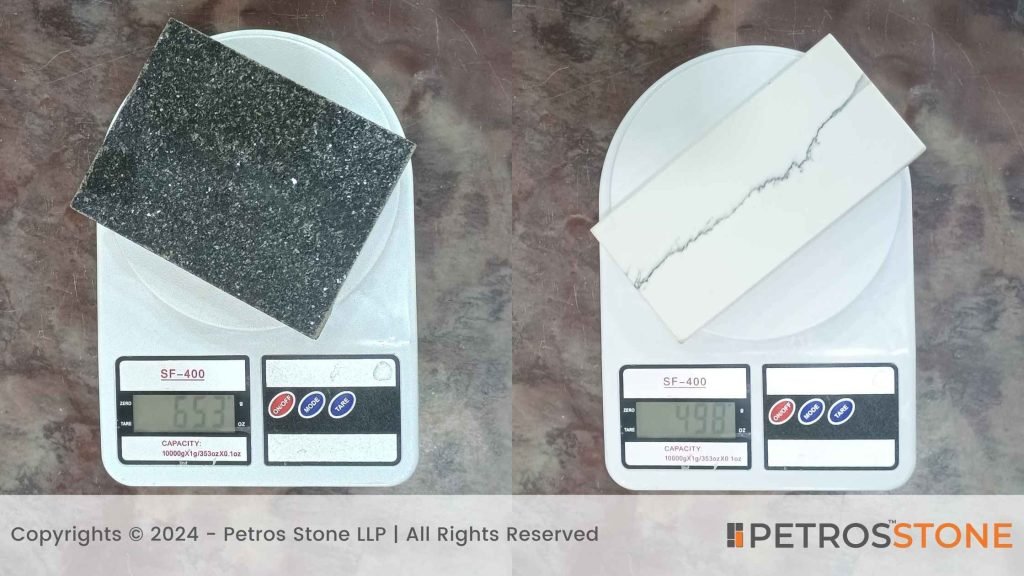
Quick Weight Reference Table
| Stone Type | Thickness | Weight per Square Foot (lbs.) | Weight per Square Foot (kg) |
| Quartz | 2cm | 10-12 | 4.5-5.5 |
| Quartz | 3cm | 15-19 | 6.8-8.6 |
| Granite | 2cm | 12-14 | 5.5-6.4 |
| Granite | 3cm | 18-20 | 8.2-9.1 |
Additional Considerations for Homeowners
How Much Does a Sheet of Quartz Weigh?
Quartz sheets are similar in weight to granite:
● 2cm Quartz Stone Slabs: ~500-600 pounds (227-272 kg).
● 3cm Quartz Stone Slabs: ~750-900 pounds (340-408 kg).
Will the Weight of My Countertop Affect My Home?
The weight of quartz or granite countertops is unlikely to impact your home’s structural integrity. Properly installed cabinets and countertops distribute the load evenly. However, always consult a contractor if you’re adding countertops to older or unconventional structures.
Is Quartz Heavier Than Granite?
Quartz and granite are comparable in weight, with granite being slightly heavier due to its natural density. The difference in weight is minimal and rarely affects the choice between the two.
Conclusion
Understanding the weight of quartz and granite countertops is vital for ensuring a successful installation and avoiding structural issues. By estimating the weight of your countertop based on its size and thickness, you can plan appropriately. Whether you choose quartz for its modern consistency or granite for its timeless natural appeal, both materials bring durability and elegance to your home. For more information and accurate calculations, feel free to get in touch with our team for a free consultation of the right countertop thickness, size and weight for your project.
Feel free to get in touch for a free consultation, quote and get a detailed understanding from our experts here at Petros®. Visit https://petrosstone.com/ or call +91-8446360361 and WhatsApp

Hi!
I’m Ritupriya, and I bring together years of experience in architecture with a deep passion for writing. At Petros® Stone, I share my insights on natural stone, helping readers explore its role in design, durability, and timeless beauty.
Brown Granite
White Galaxy Granite
Blue Bahia Granite
Silver Cloud Granite
Black Pearl Granite
Dallas White Granite


